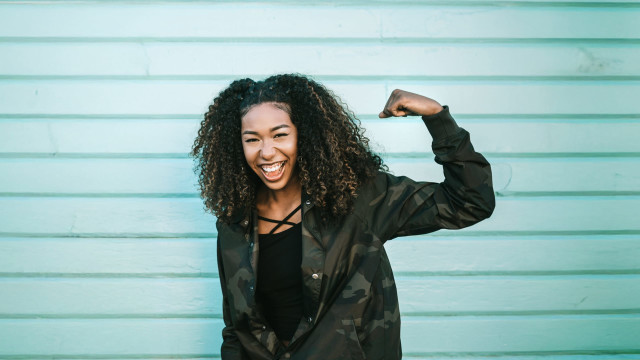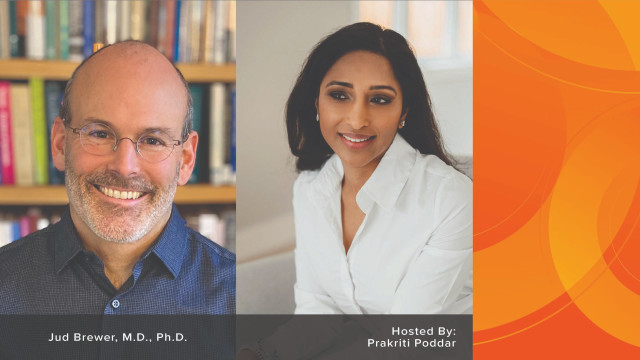Living with Earplugs Out

I was older than most when I finally became a dad. I’d spent my 20s and 30s working for a Buddhist organization in the U.K. and living communally with other Buddhists. But when I turned 40, I wanted to be more independent. I wanted a family: people I could love who would love me back, and thankfully, my partner felt the same. Before long, she was pregnant.
Each week throughout the pregnancy, we attended a group for expecting parents where we learned the intimate details of pregnancy and childbirth — none were spared. My girlfriend could sense my discomfort, noticing how I’d turn pale whenever the teacher started talking. It wasn’t just the biology making me feel uneasy, it was the sense that real life was taking me away from the quiet existence I’d spent — with my books — the sense that something very real was about to happen.
When our son Leo arrived, all my routines went by the wayside. Sleep deprived, we gave Leo a separate room, which helped with the tiredness. But Leo’s new bedroom had been my former office. Sometimes, I worked with a book in one hand, laptop balanced on my knee, baby in the other arm.
Tides of Change
There was no time for the hourlong morning meditations I’d grown accustomed to. I got irritable. My wife and I were arguing; I was feeling frustrated. I wanted my room back. Did that mean I wanted my old life back?
I felt ashamed at my grumpiness, because I knew I had freely chosen this new lifestyle. I’d been practicing Buddhism and meditation for more than two decades, so shouldn’t I have been smiling serenely amid the turmoil? I was a trained mindfulness teacher; I had been telling people to turn toward the difficult; lean into discomfort; to breathe and find your center.
Let me let you in on a little secret: Even the most practiced meditators get stressed and irritable sometimes. Don’t get me wrong, meditation had affected me deeply and provided profound benefits: I’d learned to ride out all sorts of difficulties through my practice. But now that I wasn’t able to find time for my regular meditation routine, I wondered how it could help.
I thought back to a long meditation retreat I’d taken in Sri Lanka some years before. I had been traveling in Asia, and was looking for a place to spend a few weeks just meditating. Eventually, I found a retreat center outside Kandy, run by a German monk named Analayo. There, I rented a kuti — a small concrete hut on a hillside with a single room and a bed covered with a mosquito net.
The view across the forests of the southern plains and mountains was spectacular, and I watched monkeys play in the tropical trees. But at the bottom of the hillside was a noisy main road, and there were neighbors close to my kuti who often chatted loudly, used lawnmowers, and listened to Hindi pop music on their radios.
I went to see Analayo and told him I was struggling with the noise. He gave me some earplugs, and I tried them, but a few days later, the noise was still bugging me. Next, he gave me some headphones.
Now imagine this: I sat, baking in the concrete kuti, dressed only in a lungi (a sort of wraparound skirt), my head encased in enormous, bright green headphones from the 90s, which I was wearing over wax earplugs. And the noise was still bothering me!
When I went back to Analayo for the third time, he looked me straight in the eye and said, “Vishvapani, I understand about the noise, but when I meditate, I put the earplugs in if I want to be very concentrated. But when I want to practice mindfulness, I take the earplugs out. The sounds are part of the experience.”
So, I took out the earplugs — literally and metaphorically. I allowed myself to be hot; I let it be noisy; and I acknowledged that I was feeling irritable when I wanted to be calm. I got interested in what was happening, including my irritation and the ways of thinking that had produced it. That was where I could really learn.
It turned into the strongest retreat of my life.
Finding Acceptance
Recalling this as a new father, the lesson was clear. I needed to practice what I preached. The baby and all the disruption in my life were a lot like the noise I’d experienced on retreat. I needed to embrace the sounds, and the baby — the whole chaotic jumble. I needed to take out the earplugs.
I looked for ways to practice mindfulness amid my daily life. My morning walk, pushing the stroller along a canal towpath to a cafe, became a mindful pause, a walking meditation among the swans, the clouds, and the noisy traffic. I proposed to my girlfriend, and a few months later, we were married.
Rather than focusing on the things I didn’t like, I considered my irritable feelings, and recognized, to my shame, that I’d been prone to grumpiness long before the baby arrived.
I did some self-reflection, looking closely at the irritation itself: what it felt like to experience it and the story behind it. Subconsciously, I was telling myself a story about how things should have been. The way that I liked them. I was struggling against the reality of what was. Just a little mindful awareness allowed me to see that I needed to drop the story.
That was a breakthrough in my practice, and looking back, I recognize it as when I truly became a mindfulness teacher. The people in my classes had busy lives, kids, and family problems. Some of them had long-term struggles with anxiety and depression. Their lives weren’t going to change to be exactly as they wished, and their problems weren’t going to disappear. Very few of them would start meditating for an hour each day, and even doing a little bit of practice would be a big achievement for most people. But they could do what I’d needed to do and change their attitude to their difficulties.
It's All About Balance
Our fears, struggles, and problems can seem like barriers that keep us from getting on with the important stuff. But those difficulties are a part of our lives, and there will never be a time when we have no problems at all. Mindfulness means slowing down and becoming more present and grounded — but it isn’t a way of escaping problems. Calming the mind, even a little, wins us some mental space, and we can use that space to get a better perspective on ourselves, and especially what happens when problems arise.
Some difficulties are unavoidable. Physical pain or illness, difficult events, or painful emotions can stop us in our tracks and knock the wind right out. But when we resist, resent, or try to avoid what’s happening, we make things much worse, adding extra layers of suffering.
Mindfulness helps us to turn toward the difficulties, recognizing them and even accepting them, which frees us to let go of the secondary layers — in turn, allowing us to experience life more fully and create space for joy.
Nowadays, my son is old enough to take care of himself much more than when he was little when he needed so much more from my wife and I. After 12 years of marriage, my wife and I are closer than ever.
I have a room for working, and a room for meditating. I sometimes wonder if I’m settling into other unhelpful routines, and what will happen when the next big disruption comes my way. Will the irritation come back?
The best I can do is to practice mindfulness and to not get attached to any ideal scenarios.
I try to live with the earplugs out.
In his course, "Release Your Stress and Anxiety," Vishvapani Blomfield, a Roundglass meditation teacher, will share practices you can use to soothe tension and experience calm whenever you're feeling stressed.
Key Takeaways:
- Embrace the sounds and busyness of life.
- Find times in your day to fit in meditation.
- Mindfulness is about slowing down, and finding balance.









